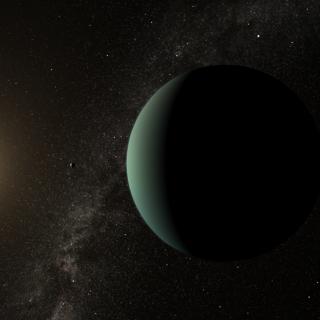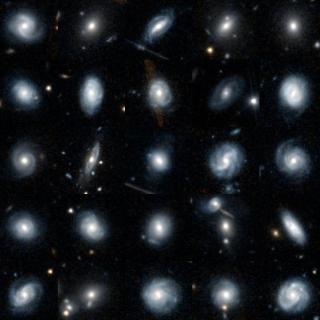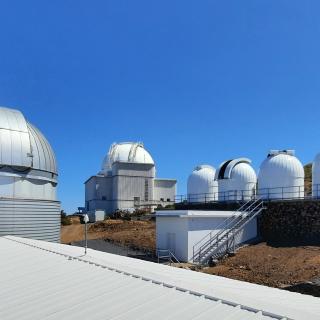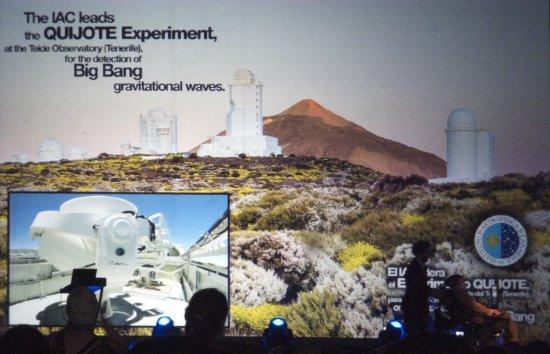It may interest you
-
 The Instituto de Astrofísica de Canarias (IAC) and the Universidad de La Laguna (ULL) has confirmed the discovery of a super-Earth orbiting in the habitable zone of HD 20794, a nearby Sun-like star. This discovery, the result of over two decades of observations, opens a window to future studies of Earth-like planetary atmospheres. The search for planets in the habitable zone of Sun-like stars is crucial for understanding the possibility of life beyond Earth and for studying conditions similar to those that enabled the development of life on our own planet. In this context, HD 20794, a starAdvertised on
The Instituto de Astrofísica de Canarias (IAC) and the Universidad de La Laguna (ULL) has confirmed the discovery of a super-Earth orbiting in the habitable zone of HD 20794, a nearby Sun-like star. This discovery, the result of over two decades of observations, opens a window to future studies of Earth-like planetary atmospheres. The search for planets in the habitable zone of Sun-like stars is crucial for understanding the possibility of life beyond Earth and for studying conditions similar to those that enabled the development of life on our own planet. In this context, HD 20794, a starAdvertised on -
 A new citizen science project launched today by the European Space Agency (ESA) and the Euclid Consortium, in collaboration with the Zooniverse platform, will enable volunteers from around the world to identify the shapes of millions of galaxies in images taken by ESA's Euclid space telescope. The aim of the initiative is to train deep AI neural networks to build the largest morphology catalogue to date. In November 2023 and May 2024, the world got its first glimpse at the quality of Euclid’s images, targeting a variety of sources, from nearby nebulas to distant clusters of galaxies. AndAdvertised on
A new citizen science project launched today by the European Space Agency (ESA) and the Euclid Consortium, in collaboration with the Zooniverse platform, will enable volunteers from around the world to identify the shapes of millions of galaxies in images taken by ESA's Euclid space telescope. The aim of the initiative is to train deep AI neural networks to build the largest morphology catalogue to date. In November 2023 and May 2024, the world got its first glimpse at the quality of Euclid’s images, targeting a variety of sources, from nearby nebulas to distant clusters of galaxies. AndAdvertised on -
 The Instituto de Astrofísica de Canarias (IAC) and the KU Leuven , Belgium, have amplified their framework of collaboration in astrophysical research. The two institutions have signed an agreement which gives continuity to the operations of the Mercator Telescope at the Roque de los Muchachos Observatory (ORM), which started in 2002, and whose work will be strengthened by the installation of a new instrument called MARVEL (Mercator Array for Radial Velocities). Mercator is a semi-robotic telescope with a 1.2 metre primary mirror. Its name comes from that of the famous Flemish cartographerAdvertised on
The Instituto de Astrofísica de Canarias (IAC) and the KU Leuven , Belgium, have amplified their framework of collaboration in astrophysical research. The two institutions have signed an agreement which gives continuity to the operations of the Mercator Telescope at the Roque de los Muchachos Observatory (ORM), which started in 2002, and whose work will be strengthened by the installation of a new instrument called MARVEL (Mercator Array for Radial Velocities). Mercator is a semi-robotic telescope with a 1.2 metre primary mirror. Its name comes from that of the famous Flemish cartographerAdvertised on
